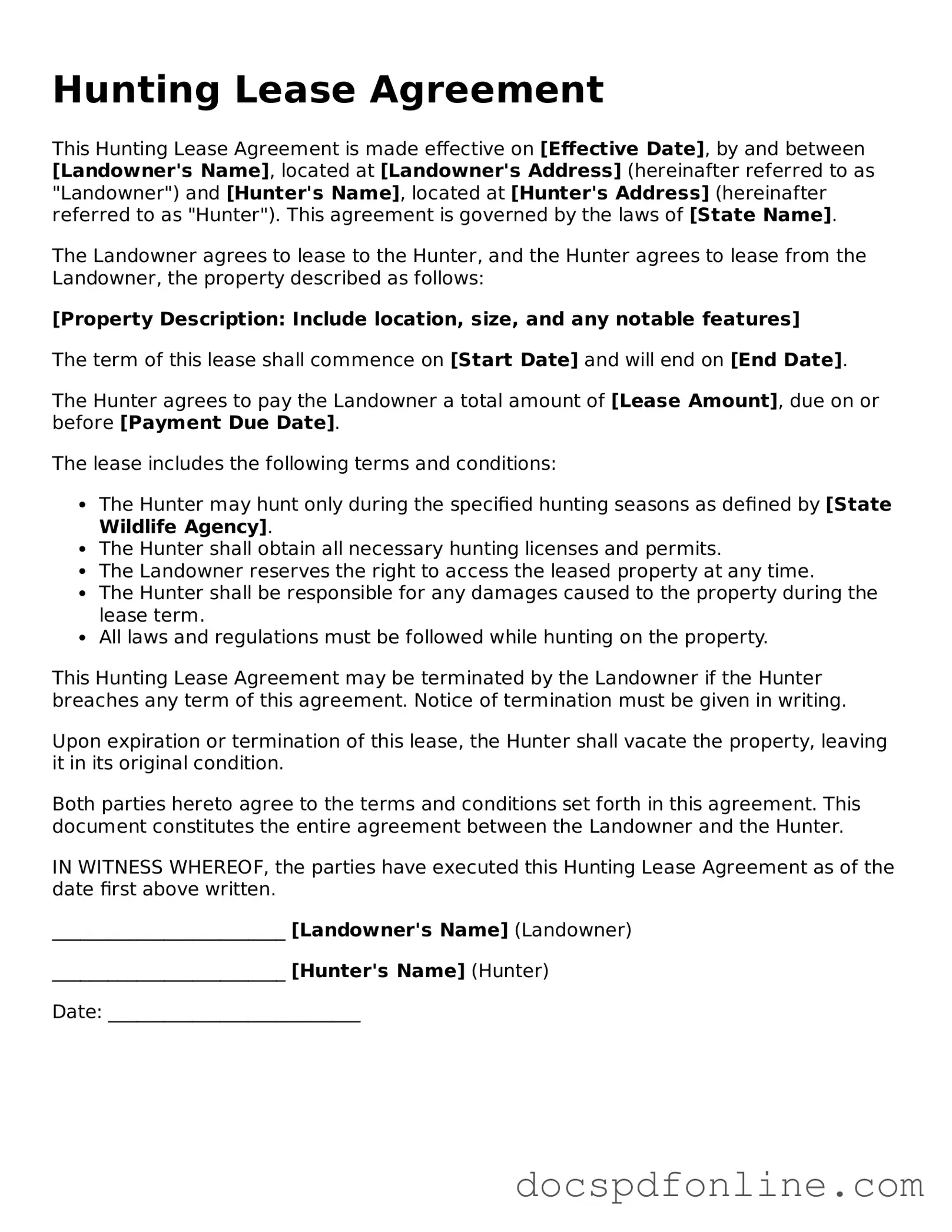Attorney-Approved Hunting Lease Agreement Document
A Hunting Lease Agreement is a legal document that outlines the terms and conditions under which one party grants another the right to hunt on their land. This agreement helps protect both the landowner and the hunter by clearly defining responsibilities, rights, and limitations. Understanding this form is essential for anyone involved in hunting activities on private property.
Launch Editor Now

Attorney-Approved Hunting Lease Agreement Document
Launch Editor Now
Save time — finish this form fast
Finish Hunting Lease Agreement online — edit, save, download made easy.
Launch Editor Now
or
↓ PDF File
